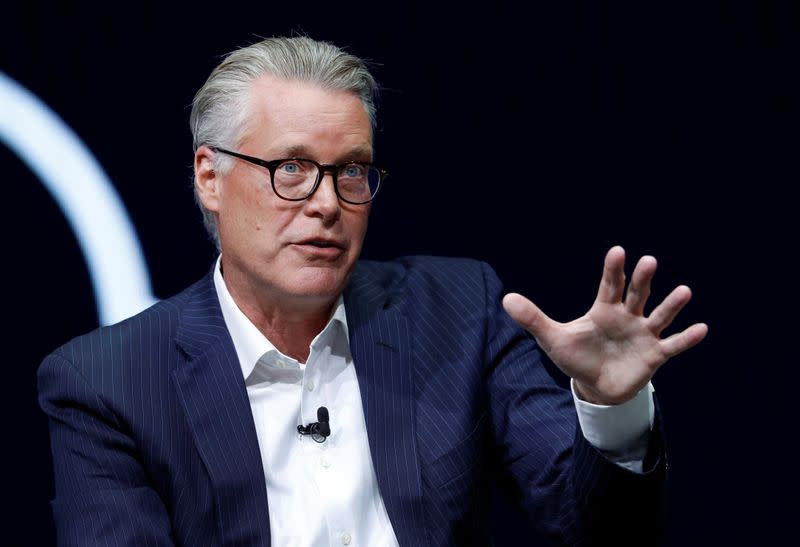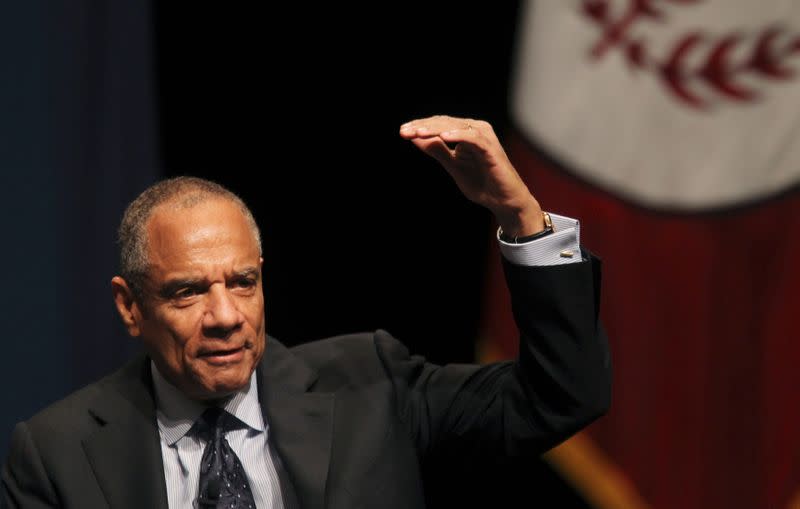In This Article:
By David Shepardson and Uday Sampath Kumar
WASHINGTON (Reuters) -Coca-Cola and Delta Air Lines on Wednesday joined a bid by U.S. companies to challenge the state of Georgia's new voting restrictions, with both Atlanta-based companies calling the law unacceptable.
Microsoft, which in February announced a major new investment in Atlanta, Georgia's capital, added its voice with president Brad Smith saying provisions of the law signed last week "unfairly restrict the rights of people to vote legally, securely, and safely."
And Citi Chief Financial Officer Mark Mason said in a LinkedIn post he was "appalled by the recent voter suppression" passed in Georgia.
The Republican-backed Georgia law strengthened identification requirements for absentee ballots, shortened early voting periods for runoffs and made it a misdemeanor for members of the public to offer food and water to voters waiting in line.
Dozens of Black executives, including Merck & Co Chief Executive Officer Kenneth Frazier, had earlier in the day called on their peers in U.S. companies to push back against wider restrictions on voting rights.
They issued their appeal after Delta and Coca-Cola had faced the threat of boycotts from activists who said they needed to do more to oppose the law.
Delta's criticism was a course reversal for the airline, which had praised the law in a statement on Friday even as it acknowledged having concerns.
Critics questioned why Delta and other companies did not speak out before Georgia's governor signed the restrictions into law. None of the companies disclosed any concrete steps they might take in response to the law.
'COMPANIES NEED TO TAKE A STAND'
The campaign against the new law, led by Merck's Frazier and former American Express Co CEO Kenneth Chenault, urged companies - so far largely silent on the Georgia law - to look past the appearance of partisanship and publicly stand against it and voting restrictions being pursued in other states.
"We're calling on corporate America to publicly oppose any discriminatory legislation and all measures designed to limit Americans' ability to vote," Chenault told Reuters.
"American companies need to take a stand."
Civil rights groups have launched legal challenges to the new law, arguing that the measures are intended to make it harder for people – especially Black voters, traditionally Democratic voters – to cast ballots.
A letter supporting Frazier and Chenault's campaign was signed by 72 Black executives including former Xerox CEO Ursula Burns, former Citigroup chairman Richard Parsons and Uber Chief Legal Officer Tony West.


